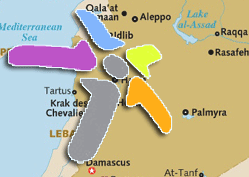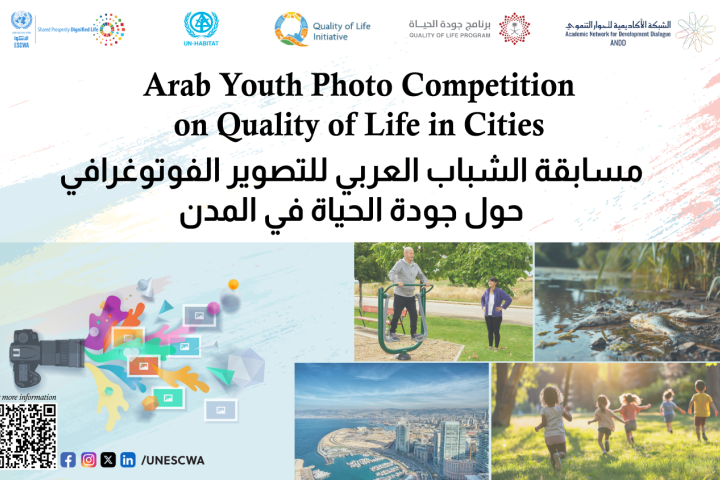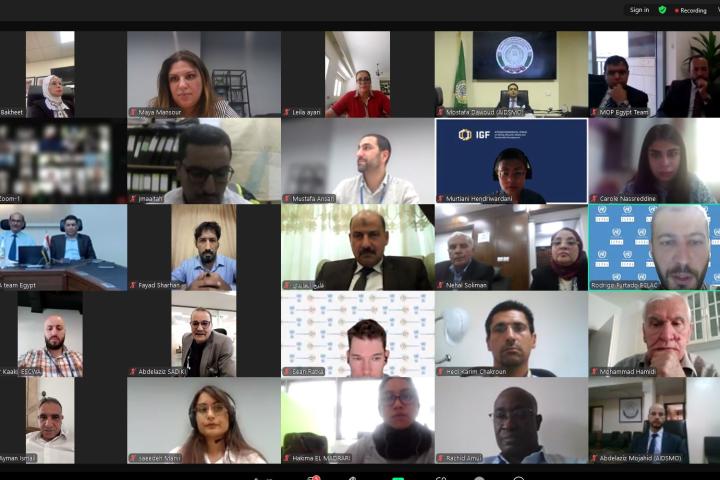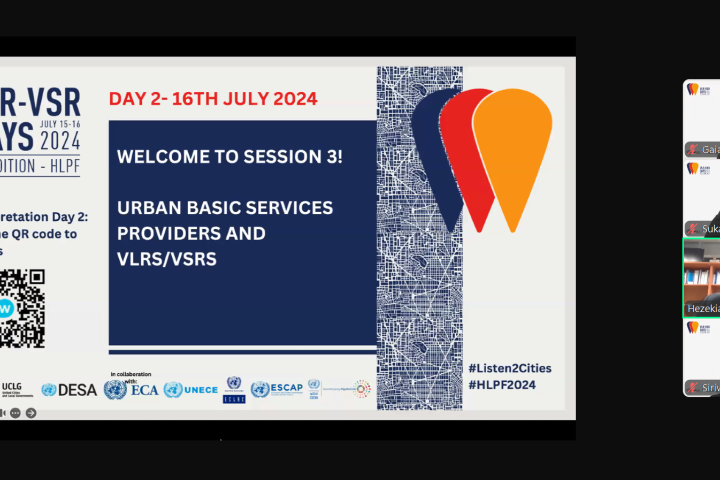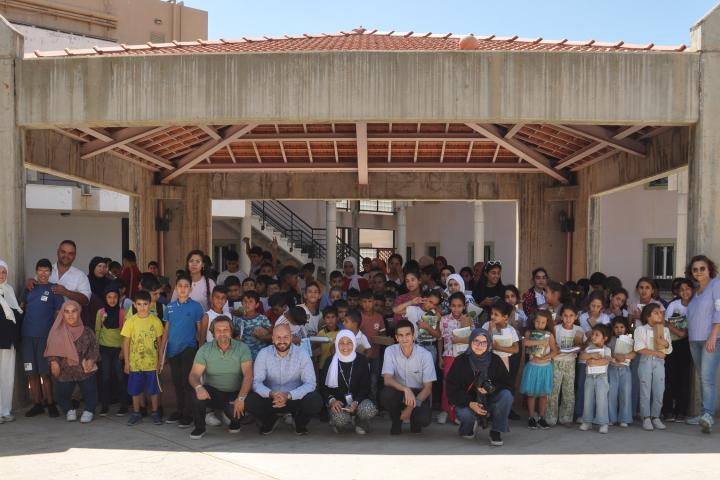When the economist Fritz Machlup introduced the concept of the knowledge industry in 1962, he distinguished five fields of the knowledge sector: education, research and development, mass media, information technologies, information services. Based on this categorization, he calculated that by the end of the 1950's a big percentage of the Gross National Product (GNP) in developed countries (namely USA), was produced in knowledge industries. Later, writer and business thinker Peter Drucker argued that a transition was taking place from an economy based on material goods to one based on knowledge.
As it turned out, this transformation was a reality, shaped on the lines of the world that created it. Information and knowledge societies gave way to what was called the "digital divide", the gap that separates poor countries from rich ones, resulting in an ever-widening gulf between knowledge and ignorance, subsequently creating a development gap. At the turn of this century, the UN General Assembly endorsed through Resolution 56/183 (21 December 2001) the holding of the World Summit on the Information Society (WSIS) in two phases, while according the lead role to the International Telecommunications Union (ITU) in cooperation with other interested organizations and partners. The WSIS was entrusted with finding ways to bridge this global digital divide by spreading access to the Internet in the developing world. The first phase took place in Geneva from 10 to 12 December 2003 and the second phase took place in Tunis, from 16 to 18 November 2005. The WSIS established 17 May as World Information Society Day.
As it turned out, this transformation was a reality, shaped on the lines of the world that created it. Information and knowledge societies gave way to what was called the "digital divide", the gap that separates poor countries from rich ones, resulting in an ever-widening gulf between knowledge and ignorance, subsequently creating a development gap. At the turn of this century, the UN General Assembly endorsed through Resolution 56/183 (21 December 2001) the holding of the World Summit on the Information Society (WSIS) in two phases, while according the lead role to the International Telecommunications Union (ITU) in cooperation with other interested organizations and partners. The WSIS was entrusted with finding ways to bridge this global digital divide by spreading access to the Internet in the developing world. The first phase took place in Geneva from 10 to 12 December 2003 and the second phase took place in Tunis, from 16 to 18 November 2005. The WSIS established 17 May as World Information Society Day.
Geneva Phase: 10-12 December 2003
The objective of this phase was to developThe objective of this phase was to develop and foster a clear statement of political will and take concrete steps to establish the foundations for an Information Society for all, reflecting all the different interests at stake. The Geneva conference concluded in "A Declaration of Principles" (DoP) and "Plan of Action" (PoA) endorsed by over 11,000 participants from 175 countries who attended the Summit and related events.
Geneva Declaration of Principles
"We, the representatives of the peoples of the world, assembled in Geneva from 10-12 December 2003 for the first phase of the World Summit on the Information Society, declare our common desire and commitment to build a people-centered, inclusive and development-oriented information society, where everyone can create, access, utilize and share information and knowledge, enabling individuals, communities and peoples to achieve their full potential in promoting their sustainable development and improving their quality of life, premised on the purposes and principles of the Charter of the United Nations and respecting fully and upholding the Universal Declaration of Human Rights".
"We, the representatives of the peoples of the world, assembled in Geneva from 10-12 December 2003 for the first phase of the World Summit on the Information Society, declare our common desire and commitment to build a people-centered, inclusive and development-oriented information society, where everyone can create, access, utilize and share information and knowledge, enabling individuals, communities and peoples to achieve their full potential in promoting their sustainable development and improving their quality of life, premised on the purposes and principles of the Charter of the United Nations and respecting fully and upholding the Universal Declaration of Human Rights".
Tunis Phase: 16-18 November 2005
The objective of the second phase was to put Geneva's Plan of Action into motion as well as to find solutions and reach agreements in the fields of Internet governance, financing mechanisms, and follow-up and implementation of the Geneva and Tunis documents. More than 19,000 participants from 174 countries, including Heads of state/government, Vice-Presidents, Ministers, Vice Ministers and Deputy Ministers, attended the Summit and related events.
ESCWA and WSIS
In Western Asia, ESCWA has played a leading role in the WSIS process since its inception. In early 2003, before the Geneva phase, ESCWA organized the "Western Asia Preparatory Conference for WSIS". The conference promoted the understanding of what constitutes the Information Society and identified key issues as well as national and regional needs and priorities, culminating with the "Beirut Declaration". This declaration was submitted to the second preparatory committee meeting for WSIS, held in Geneva from 16 to 28 February 2003, and together with the declarations of the other four regional conferences, was the basis for the working document leading to the DoP and PoA. During the latter part of 2004, in preparation for the second phase of the WSIS in Tunis and in line with the recommendations of the Geneva phase, ESCWA organized the "Second Regional Preparatory Conference for WSIS - Partnership for Building the Arab Information Society" (E/ESCWA/ICTD/2004/4), which resulted in the Damascus Call - Towards Partnership for Building the Arab Information Society and the production of the "Regional Plan of Action for Building the Information Society" (RPoA).
In order to keep the WSIS momentum going and in keeping with the recommendations of the WSIS "Tunis Agenda for the Information Society", ESCWA will hold a conference entitled "Regional Follow-up to the Outcome of the World Summit on the Information Society", during 16-18 June 2009 in Damascus.
The main objectives of the conference are to review and follow-up on the implementation of the WSIS outcomes; identify new projects for inclusion in the RPoA and in other plans of action, and update the RPoA and make recommendations for the enhancement of ICT strategies and plans of action, in light of accumulated experiences.
For more information on the meeting, please visit:
http://www.escwa.un.org/information/meetingdetails.asp?referenceNUM=850e
The objective of the second phase was to put Geneva's Plan of Action into motion as well as to find solutions and reach agreements in the fields of Internet governance, financing mechanisms, and follow-up and implementation of the Geneva and Tunis documents. More than 19,000 participants from 174 countries, including Heads of state/government, Vice-Presidents, Ministers, Vice Ministers and Deputy Ministers, attended the Summit and related events.
ESCWA and WSIS
In Western Asia, ESCWA has played a leading role in the WSIS process since its inception. In early 2003, before the Geneva phase, ESCWA organized the "Western Asia Preparatory Conference for WSIS". The conference promoted the understanding of what constitutes the Information Society and identified key issues as well as national and regional needs and priorities, culminating with the "Beirut Declaration". This declaration was submitted to the second preparatory committee meeting for WSIS, held in Geneva from 16 to 28 February 2003, and together with the declarations of the other four regional conferences, was the basis for the working document leading to the DoP and PoA. During the latter part of 2004, in preparation for the second phase of the WSIS in Tunis and in line with the recommendations of the Geneva phase, ESCWA organized the "Second Regional Preparatory Conference for WSIS - Partnership for Building the Arab Information Society" (E/ESCWA/ICTD/2004/4), which resulted in the Damascus Call - Towards Partnership for Building the Arab Information Society and the production of the "Regional Plan of Action for Building the Information Society" (RPoA).
In order to keep the WSIS momentum going and in keeping with the recommendations of the WSIS "Tunis Agenda for the Information Society", ESCWA will hold a conference entitled "Regional Follow-up to the Outcome of the World Summit on the Information Society", during 16-18 June 2009 in Damascus.
The main objectives of the conference are to review and follow-up on the implementation of the WSIS outcomes; identify new projects for inclusion in the RPoA and in other plans of action, and update the RPoA and make recommendations for the enhancement of ICT strategies and plans of action, in light of accumulated experiences.
For more information on the meeting, please visit:
http://www.escwa.un.org/information/meetingdetails.asp?referenceNUM=850e
